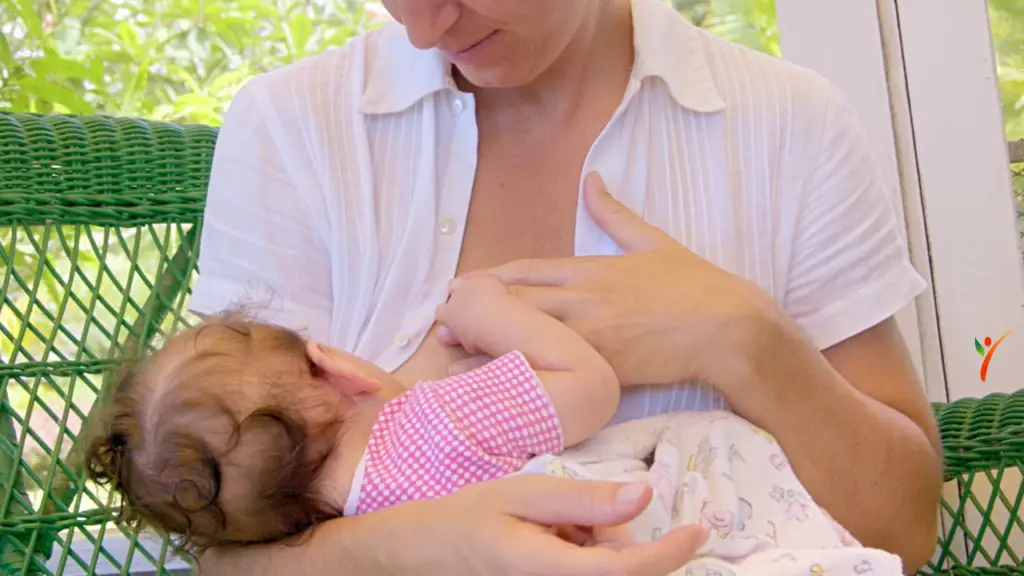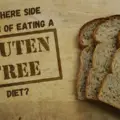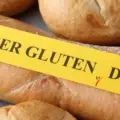As a new mother, it is natural for you to be extremely careful about everything that goes into your baby's body. If a baby is not more than six months old, they naturally depend on the mother for their milk. The mother's breast milk is the only food source for them, so it must be healthy.
Well, if you are worried that your baby might be gluten intolerant or may have celiac disease, there are a few things you need to know. Gluten and breast milk can go hand in hand.
If you have questions, we will help you understand the relation between breast milk and gluten. Read on to find out more.
Relation Between Gluten And Breast Milk

Most new mothers have this nagging question – does gluten enter via breast milk? Or is breast milk gluten-free?
Well, to answer your query about gluten and breast milk precisely, yes, gluten does pass through to breast milk.
- Whatever the mother consumes is likely to get into the baby's body through breast milk. That is why you must pay attention to everything you put into your body as a new mother, as it would directly affect your baby.
- If you eat any food containing wheat, rye, or barley, it will pass through your digestive tract, and in turn, you will have gluten in your breast milk. And how do we know this? Since gluten can be quite harmful to celiac patients or those sensitive to gluten, scientists have conducted research.
In one of such researches, 53 women were the subjects of study. These were lactating women who had to consume twenty grams of gluten. Twenty grams of gluten is equal to around 6-7 slices of bread.
- They then collected 80 samples of breast milk from these women, varying according to the time. In 54 out of 80, they found that gluten's content was the highest between 2-4 hours of the women consuming the gluten.
- There was a second study that the researchers carried out. Here the women were not on an exclusive diet for pregnant women and had typical meals containing gluten.
- They then collected 643 samples of breast milk, and in all of them, there was gluten. But gluten's content kept varying right from 0.01 parts per million to as high as 18 parts per million.
Why Is Gluten Present In Breast Milk?

Now that we know that gluten is, in fact, present in breast milk, do you know why? According to doctors, gluten, and most other allergens pass through breast milk to the baby to train their immune systems.
Since the baby has no other food source, the mother's breast milk is the only way their immune system can get stronger. If a baby has no allergy issues or gluten intolerance, this does not adversely affect them.
Their system can digest the gluten and allergens from the milk and learn to fight against them independently. But if the baby's system does not accept these proteins, it may develop allergies. That is why most cases of gluten intolerance or celiac disease begin in childhood.
If you find that your baby has specific allergic reactions, it is probably through your breast milk contents. And if your baby shows the typical signs of gluten intolerance, it is likely they may be either sensitive to gluten or have celiac disease.
It is not very common to recognize gluten sensitivity until you put your baby on solid foods. That is, until about six months, since they are on breast milk only. So, when they start ingesting solid foods, gluten intolerance and other allergies come to light.
If you find that your child has been reacting adversely to your breast milk, it is time for you to make significant changes in your diet. You can try eliminating gluten-containing foods from your diet or any other allergen sources.
This way, the gluten content in your body and breast milk will reduce, and your baby's allergies will be in check.
What To Do If Your Baby Has Celiac Disease?

If your baby has celiac disease or is sensitive to gluten, you have to make the necessary changes.
You can also wean your baby if you cannot make the dietary changes for yourself. But since breast milk is the best food source for the baby, it is best to continue nursing until the appropriate age.
Even babies with celiac disease and gluten sensitivity need breast milk, but it should be free of gluten. And this can only happen when the mother stops consuming gluten.
Your child can be gluten sensitive or have celiac disease even if you or anyone in the family does not. It all depends on the child's digestive system. So, even though it might be overwhelming, going on a gluten-free diet is the best alternative.
There may also be situations where you are still nursing, and your baby might be fussy despite not being gluten sensitive. So, if your baby is still reacting adversely to breast milk and gluten does not seem to be the cause, you need to consult your pediatrician.
It so happens that babies tend to get fussier about other allergens in breast milk that irritates their gut lining. So, before you assume gluten intolerance or celiac and start making significant changes to your diet, it is best to ask for guidance from your pediatrician.
Although breastfeeding is super healthy for newborns, it still cannot prevent celiac disease.
Is Milk Gluten-free?

With all the facts about gluten in breast milk, one may wonder if milk is gluten-free. Often, the people who go on a gluten-free diet also adopt a dairy-free diet. But is there gluten in dairy products? And do you need to go dairy-free?
Well, to answer this question precisely, yes, milk is gluten-free in its natural form. But it would be best if you were careful about the milk products made out of milk.
While milk itself may be gluten-free, the milk products are not always so. If there is a food item made of milk and has lots of other ingredients as well, in all likelihood, it is gluten contaminated. So, it is best to check the labels of the food packets before buying them.
If you are fond of drinks containing milk, you must be careful about those having malt. If a drink comes with a malted milk drink label, it indeed has gluten in it. When there are extra ingredients and flavors added to any milk products, one can be sure there is gluten in it unless otherwise labeled. So, if your milk drink has malt in it, it is made of barley, containing heavy amounts of gluten.
If you are eating a gluten-free diet to keep yourself healthy and not due to any health issues, you need not go dairy-free. But if you are newly diagnosed with celiac disease and have adapted to a gluten-free diet, you need to be careful about dairy as well. It is because, for those with celiac disease, having secondary lactose intolerance is quite common.
This secondary lactose intolerance happens due to the lack of lactase in the body. Lactase is an enzyme on the lining of the small intestine and helps digest the milk sugar. The gut lining is already irritated with celiac disease, so this enzyme's loss is quite common.
But this lactose intolerant condition is not permanent. Make sure you follow a completely gluten-free diet if you are someone who has celiac disease. If you stay on a strict gluten-free diet, your lactose intolerance will go away soon.
When the gut lining gets enough time to heal, the lactase enzyme also develops again. So, if you love dairy and have celiac disease, you need to be patient enough to let your body adapt to the changes.
Dairy-Free And Gluten-free Food Ideas

Going on gluten-free plus a dairy-free diet doesn't need to be complicated. To maintain your health, you need to adopt a clean eating regime. Even if you are following the diet, your meals do not have to be tedious and challenging to make.
Gluten-free and dairy-free food options are relatively easy and super delicious too! So here are some ideas for your gluten and dairy-free meals.
You can follow these ideas and keep your breast milk entirely healthy for your baby.
Cocoa Coconut Shake
This shake comes with the deliciousness of coconut cream and chocolate cocoa. It is entirely free of dairy and gluten and full of nutrients. The best part is how low carb it is, so no worries about your fat content.
Carrot Rice Nasigoreng
If you love Asian food, you already know what NasiGoreng is. And if not, it is time for you to taste this delicious dish. This flavorful dish is a power-packed combination of carrots, broccoli, bean sprouts, eggs, and meat (optional).
This yummy dish is not only full of flavor, but it is also rich in Fiber, Vitamins A, B, and D. it will make for a great breakfast recipe or a light meal on detox day!
Chia Matcha Smoothie
If you are a coffee lover, you sure know about matcha coffee and its lip-smacking deliciousness. Busy days and work can make you skip breakfast, the most important meal of the day. Well, why not prep for breakfast from the previous night itself?
The goodness of matcha is evident because it has selenium, zinc, magnesium, vitamin C, and much more. All these components help to reduce inflammation in the body. With chia, matcha, and all the other fruits in the smoothie, your breakfast is sure to be super healthy.
Avocado Egg Salad With Collard Green Wraps
Who can deny the absolute deliciousness and health benefits of avocado? And adding to the eggs shoots up its protein levels. Seasoning the salad with spices and jalapeno will maximize the flavor.
And when you wrap it in greens, your body will love the health benefits too. Eating your greens is super important, and this dish will make you want to eat more of it.
Conclusion

The recipes are perfect for nursing mothers. If you want to keep gluten out of your baby's system, you can follow these recipes for yourself. Your breast milk will not contain gluten with these recipes, and your baby will be safe.
Eating healthy with a gluten-free and dairy-free diet is, at times, challenging but indeed possible. And when it concerns your baby, you've got to take all the possible measures to keep them safe!





